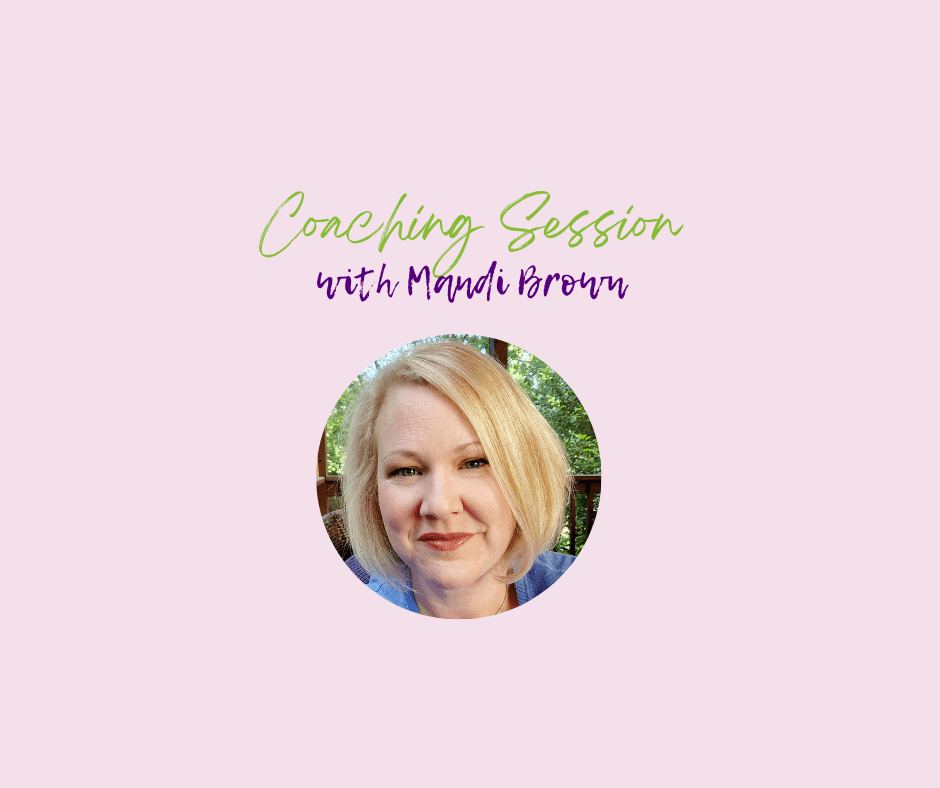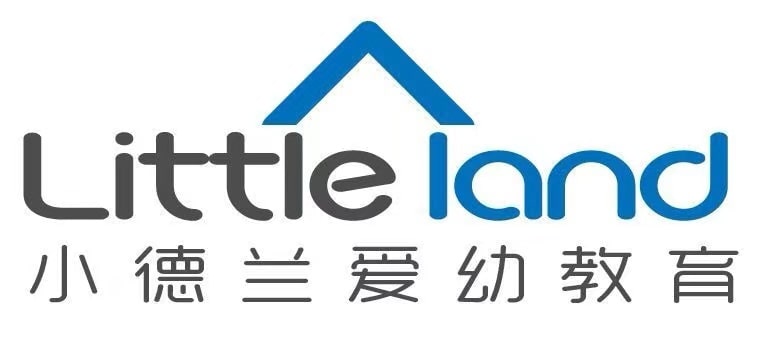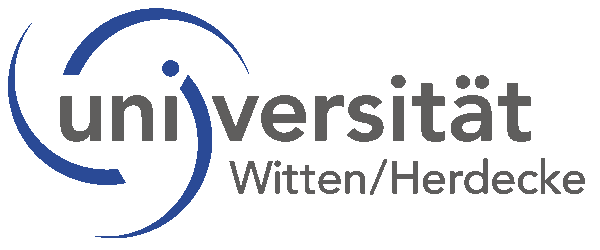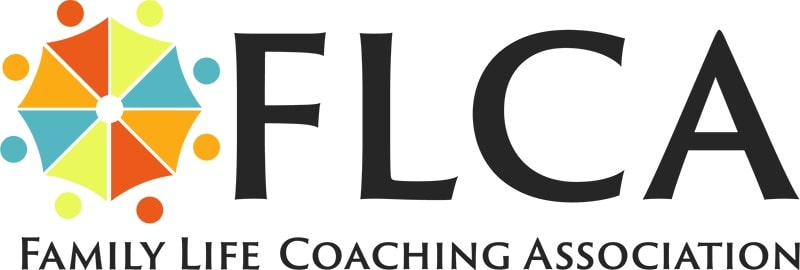Project Description

Read the transcript
Introduction: Hi there, mama. Are you searching for another way to approach motherhood? One that puts your needs first, that allows you to live it all without guilt or holding back any of your amazing talents and unique gifts, then the Live It All Mommy Podcast is made for you. Each month we are taking you behind the scenes, looking into the real world of motherhood.
Giving you a roadmap to unleash your unique potential, your passion, self-trust, and purpose as an amazing mother, deep soul, and powerful working woman, it’s time to live at all. Mommy, let’s dive in.
Pia Dögl: Hi there, mama. Are you searching for another way to approach motherhood? One that puts your needs first, that allows you to live it all without guilt or holding back any of your amazing talents and unique gifts, then deliver. All Mommy Podcast is made for you. Each month we are taking you behind the scenes, looking into the real world of motherhood.
Giving you a roadmap to unleash your unique potential, your passion, self-trust, and purpose as an amazing mother, deep soul, and powerful working woman, it’s time to live at all. Mommy, let’s dive in.
Do you want to know how to manage a demanding corporate job while being an amazing mom? Today I’m most delighted to interview Mercy Ringer Manning, a powerful woman who is not only Vice President, responsible for sales and sustainability strategy at a big global corporation, but also the wonderful mom of three amazing young children.
Mercy. Thank you so much for taking the time to be with us today.
Mercy Manning: Thank you, Pia, for including me.
Pia Dögl: Aw. Mercy. Let me be honest. Every time I see you at school, our children go to the same school, the San Francisco World of School. Every time I see you there, you look so full of energy and radiant power. And then you also have the time and the energy to go on school camping trips with your kids.
Before we share your story what makes you get up in the morning? What gives you energy?
Mercy Manning: I think I’m in alignment with what I really care about, so that’s my kids. That’s making sure that I’m doing good work in the world that I align with both from a mission stand standpoint and also the people I work with.
I’ve just cut all the things that don’t matter and I am always trying to solve for things, but I can’t solve for everything. And so I let go of the things that I’ve, through the years, realized aren’t the impactful activities and so that saves a lot more energy for the things I do care about.
And then also I spend my time doing things that re-energize me. So I’ve found a way to be inspired by my work, which I’m very grateful for. I know that’s not everyone’s situation bu t that re-energizes me.
And then also my family. Being as present as I am in their lives, despite my job it’s worth that hustle to be there. And I get something back from that.
Pia Dögl: Beautiful. That decision to really focus on, and have the ability to distinguish what is important for you and where you can just let go of things that aren’t really nourishing and where you can’t make any difference in the world.
Mercy Manning: And I’ve gotten better at that. One of the many benefits of maturing and having children is that they help you get over yourself in various ways. Those are things that, when you’re looking at your kid, when they’re hungry, everything else kind of falls away.
I’ve just been lucky to have three children that continue to help me focus on the things that do matter, which is paying deep attention to them, putting my phone down, listening to the real question they’re asking instead of just glossing it over.
So they are definitely my – and this is said by so many people – but they’re your teachers, right? They are good reminders that you need to focus in on what’s happening in that moment.
Pia Dögl: Tell us a little bit about your work life before and after you became a mom.
What were your biggest aha moments or mindset shifts? Because what you are saying sounds like your children are your greatest teachers. So what would you say did you learn when you were working before you were a mom?
Mercy Manning: I’m a lifelong athlete, very competitive. On the athletic side I went into a career that I thought would be really hard to get into – investment banking.
That competition was driving me. Always knowing that investment banking was something I didn’t want to do for a long time, but I wanted to prove that I could.
But I also, and no offense to anybody still in that industry, I saw the toll that it was taking on the senior leaders in the group I was with and knew that what I ultimately wanted was to have a family.
I wanted to have a family that liked me. That saw me. And so through some turn of events, I went to grad school, got into the technology startup world in the Bay Area and at first it was still kind of the challenge of doing that. That was exciting to me.
But then my father suddenly passed and that really pulled my life into focus of like, what am I doing? What am I working? Even though I wasn’t in banking anymore, I was still working 80 hours a week and traveling around the world and learning a lot. I was really grateful for the opportunity but I wasn’t in balance at all.
Pia Dögl: And what were you doing at that time?
Mercy Manning: I was leading business development for a tech startup, multiple rounds of VC funding, helping with that , doing technology integration, all the business integration with partnerships, go to market stuff.
I had my hands in everything. It was a great opportunity. I learned a lot and traveled around the world, did business in Asia and Europe but really when that event happened in my family, it just made me think. “What is this technology that I’m spending my life force energy on getting off the ground and expanding, et cetera.”
I’m like, “Okay, if I’m going to be in technology, this leads into how I continue to make choices. If I’m going to be in this, giving so much of myself, why not help bring a technology to market that I actually really care about versus this one which I didn’t.
It wasn’t bad, but it was not anything that I would say I was super passionate about. And so that led me, just through my network and actually with my sister, to make an introduction to a different technology startup that actually the impact of that, the outcome of that technology was significant energy savings for the built environment.
So that means large commercial high rises, corporate campuses, the built environment has a huge energy footprint and water footprint to keep these buildings going. And so I really took all the information all the technology that I had been learning about and working on at the last company.
And even going back to my investment banking days and took that knowledge and then applied it to this new startup that was having a bigger energy impact. So I personally got aligned with that.
So going to your question that focus on am I aligning with the outcome of this business? If this business is successful, which I have a knack for helping companies grow on the revenue side and customer acquisition side, if I’m going to help this grow, is it worth growing and is it worth me giving so much of myself?
Because I tend to work a lot and pour everything into it. And so that event with my dad passing just really pulled everything into focus. I moved companies and then once I had my first kid, that focus came, I got even more in focus.
And this is where this kind of little nerdy side of me comes out, once Mason was born, my oldest , I was counting the hours that I was away from him and what was I doing with those hours? Because I worked in this technology that you actually quantified the amount of energy we were saving as the technology was being adopted.
I turned that back on myself and I said, how much energy am I saving in this world? Every hour that I’m away from this child who I became very clear was really my priority. And so that’s the math that was going in my head.
And so then, I was looking at the landscape of companies and I’m like, okay, well if I’m going to be away from my kids at all, I want to make sure that I’m always increasing my impact. I’m very lucky that I am able to make those choices. And I was able to navigate to companies that allowed me to do that because I know that’s not everyone’s situation.
But I would take it back to what impact are you making? I was counting on how much energy I was saving, how much carbon, all that stuff. For other people it’s like, how many lives are you touching? Whatever it is for you.
And so that led me to my next company where I went to a technology that saves even more energy and has an even bigger impact than the one before that. And then that led me to the company I’m at now.
I started working for Align, which is building the most energy and water efficient data centers available. And we’re really the leader in that. And so I was really inspired by the founders and their vision, and I knew that I could help because I’m really good at taking that idea and then growing it and making it commercially viable, et cetera. Helping with very important customer feedback in the early stages. So I kind of turned my attention to that company when my third child came. So that was the driver. So I don’t know if that answered the question.
Pia Dögl: Yes, it does. And what I’m hearing is – the name of our podcast is Live It All, Mommy. And what I’m hearing is that it is not necessarily possible to live it all from one moment to the next. But what you are describing so beautifully is that from each step that you took you went further, closer to live it all and give it all.
And that this is only possible if you are courageous. And that you reflect at every step on what you are doing and not just being in the system you are in stuck with maybe fear to take the next step, but really to go further. This helped you to come to a point where you obviously are very much living what you are passionate about and what’s fulfilling.
Mercy Manning: I grew up with two parents that ran two companies together. Small businesses but with lots of employees and doing very honest work in the world. And so I had that example of seeing my parents. I always remember they said, we can sleep, we can sleep well at night.
Like they have done good work. It wasn’t glamorous, it wasn’t fancy. But they were honest. They ran honest businesses and they made an opportunity for hundreds of other families to support themselves and their children. And so that was something that was deeply ingrained in me.
And I saw my mom working and I saw my dad working and it was not always easy, but I learned so much from being part of those businesses, listening to them talk about it at the dinner table that for me. I knew that my mom wasn’t always with me but we had so many touchpoints, we had family dinner every night.
Now that’s something that I am trying to do, my parents didn’t travel. I travel a lot and so that is something that does weigh on me that we don’t have family dinner every night because I’m on the road, one night a week or two nights a week depending.
But I do my thing of making dinner before I leave and keeping the fridge full so that I feel like I’m still connected to them in that way.
Pia Dögl: Yes. And that’s a very important point. Because oftentimes when we are working and we are away from our children, we feel guilty that we can’t spend that many moments with them.
Or even if we are with them, if we are not fully present, then we feel guilty. And my experience is that it is most important that those moments we are with them, and even if it is just one moment per day, we are fully present, that nourishes them deeply. And it’s all about our awareness to be present.
Better it’s one moment that we are really present than lots of moments where we are together, but we are not present. Would you, would you agree to that?
Mercy Manning: Yes, I a hundred percent agree. And that’s part of why, when we’re at home We’re really together and we’ve made that choice to not have the media in our home. Even though I work in tech.
And all my customers are related to that world. For us it’s like we’re cooking together or we’re emptying the dishwasher together and talking about whatever was happening at school that day, or they’re playing… my daughters are always acting something out from school or whatever.
So I a hundred percent agree. What I’ve done is, and this again goes back to my dad, he said this early to me. Thankfully he saw this. He probably saw my trajectory before I did.
But he probably saw my competitiveness and personality and said he knew that I wanted to have a family. I was always drawn to children and taking care of kids. I had nannied for so many different families growing up but he said if I really wanted to be able to have a really strong career and also be really present with my family, he thought that me being on the revenue side of a company where I really have a potential chance at controlling my hours a little bit more would be really important.
And that put was put in my head early on. And that’s really been what I’ve tried to do.
I do work a lot but my whole team knows there’s an hour and a half between pickup and dinner and that it’s not going to be the best time to call me. And they know that if they call me between 7:00 AM and 8:00 AM I’ll pick up, but there’s going to be three other kids in the background. They’re going to be contributing to the conversation and that’s how it’s going to be.
Pia Dögl: How important to set boundaries, right?
Mercy Manning: Oh, and it’s very clear, I’m happy to pick up if there’s been that expectation set that I have this other job that’s just as important which is getting my kids ready for school and having breakfast with them and making their lunches with them. And that’s what’s happening and I’ll pick up if I can, but if I can’t, I can’t.
Pia Dögl: Yes. And that brings us to the next question. So in my one-on-one coaching programs where I’m working with moms who either want to reenter the workforce or try to find a better balance between work and family life, I very often hear that it is so hard for them to stop checking work emails after working hours, and to not be constantly available for their clients or colleagues. And you obviously are very clear with that. So you are not a person who’s checking emails first thing in the morning or during the night?
Mercy Manning: While I’m brushing my teeth, I look at my phone just to get a scan. Because my team is spread across the country. So we’ve got folks that are starting their day much earlier. So I do take a quick scan to see what is brewing. And if there’s anything that needs quick attention.
And that’s before I walk out and even see my kids. So then I have that in the back of my head. But I’m not sitting there trying to make breakfast and do emails. That’s not happening.
I probably break this rule a little bit more than most, but I’ve figured out a way, and again, the kids are now a little older, so this is way more possible.
I just saw a mom the other night. I was getting my daughter’s hair, they’re biracial so I get their hair braided every three weeks. Anyway, there was a mom that came in after they were finishing up and she just looked exhausted and she had really young kids. She had a 10 month old and a two-year-old, and she was just so tired. I’m like, “Yeah, you are really tired and I remember that. And all I can tell you is that’s this phase and it’s really, really hard. And I still remember how tired I was.” So I think sugarcoating, it doesn’t help anybody.
But it does get to a point where now I’m able to take them to swimming and tennis or gymnastics or whatever it is, Little League. And there is this time while they are doing something that they’re really enjoying, that I am there doing some emails and finishing up the day so that when the day is over, I’m with them.
Pia Dögl: And that brings us to a very important question. You mentioned that at the beginning that you are aware of doing some stuff that nourishes you.
What are you doing exactly to nourish and to fill your cup to really take care of yourself. Is this part of your daily life or just here and there when it’s possible? How do you handle that?
Mercy Manning: So it’s gotten better. I’ve always known that I give a lot. I’m very aware of how much I give and I always joke, I have wide shoulders so I can carry a lot too.
And I’m happy to do that, especially for other women in my life that are going through harder times. I am someone that has always been attracted to preventative medicine and more Eastern styles. Like acupuncture, deep tissue massage. I just started going to see a Rolfer, which is super intense.
But then, because of my athletic background, stress release comes through the physical doing of things. Whether that’s something at the gym.
I did start, and this was a total hack, because I love having my female community too. I’ve worked with mainly men my whole life, and I’ve always had really strong female friends, moms, deep longtime friendships. And so there were a few of us that started cold plunging in the bay. I was like, “This is amazing. I’ve got my 10 minutes or 20 minutes of friend time mixed with deep relaxation, physical release and I can do it in between conference calls. Amazing.”
I was on a conference call during one of those times where I couldn’t quite manage the time. But that’s the other thing about being in sales and on this customer side where there’s times where I just have no control. I have to fly here, there, wherever. But, on the days that I’m not traveling, I can carve out 30 minutes here, 30 minutes there. And I’ve gotten so much better at that in the last two years now that the kids are a little older. And also because just where I’m at in my career,
I could have done this earlier and I should have done it earlier. And I guess I’d say to any of your clients that are younger, try to insert that, that self care that whatever it is to you. Insert that earlier. Because I dind’t, I let that go for a few years and that paired with the lack of sleep, it was tough and I didn’t feel great.
And that also lowers your energy even more. So, I’ve gotten a lot better at inserting that and I try to do something every day. If it’s not every day, it’s every other day, and I finally started bringing running shoes in my travel carry-on, which I hadn’t done. I’m like, “Well, I’m not going to go to the gym if I don’t have my stuff.” So at least I bring it. And it’s halfway there of getting to the gym. And then I’ve even started, even if I only have 15 minutes, I will go walk on the treadmill or get on the bike and just do something. Before the full day starts when I’m on theroad.
Pia Dögl: Beautiful. The beauty of running is you just need good shoes, nothing else. You don’t need the open hours of a gym, you just go out whenever it’s possible. Right?
So what would you say is the number one piece of advice for new moms who want to live it all. You were mentioning the self-care. What would you say is most important for you looking back at your life?
Mercy Manning: The biggest thing is to listen to your intuition. Because when you’re a new mom, there’s all these people that are telling you what to do or how they did it. And some of it’s helpful. I mean, I’ve learned a lot from folks, but, there’s also a whole industry of people writing books telling you that you should often do things that are against your intuition. Promoting the newest way of sleep training, etc. For me, I don’t know if it was because I was too tired to take in any of that information or if it’s because I had an amazing midwife that I did trust and I had a very present mom who I trusted but beyond that I didn’t really look too far out. And I really just tried to, get clear with my intuition because I feel like that’s the hardest thing.
People usually when they’re pregnant, this is going to be the first time you’ve done something brand new. For years. The last time you did something brand new and had never tried it before, was probably in grade school. And now you’re this adult person that’s supposed to be l knowing how to live life a little bit, and then you’re thrown back into this point of everything being new every day with this baby and it’s really hard.
And I think that there are two things. One, it’s just acknowledging that it’s really hard and you’re not going to know what to do. But then that’s where that intuition and connecting to that and just trying to listen and look at exactly what’s in front of you with the baby versus all these people telling you all this stuff that may or may not be relevant.
And then also just acknowledging that it’s really hard. Anybody that says it’s not hard is lying. Or maybe doesn’t remember, because that’s the other thing, you don’t really remember all of the hard things or else we wouldn’t have more kids.
And I’ve had three and I would have more. I was working and I wasn’t sleeping and I exclusively breastfed and I pumped all around the world.
And then also, ask for help. That’s the other thing. I think some part of me felt guilty for saying I needed help. And that’s really hard.
Pia Dögl: So what I’m hearing are three big piece of advice. So first really to listen to your intuition. Second, practice self-compassion, if I understand that right. Really to notice that it is tiring and to allow yourself to be tired, to really recognize what you are actually doing. And third, to ask for help.
Mercy Manning: And also I tell people this all the time. We’re amazing. The fact that we did this. I mean obviously humanity depends on us doing this really, really hard and valuable work, which is being a mother.
And I’ll say this because I’m very passionate about this topic. I don’t want the word mother to get erased. Because it’s being erased right now. And it is the most disrespectful thing because what we do as mothers is a hundred percent the hardest thing and also the most important.
Around the world, women support each other. I think we’re a little bit more isolated in how the US kind of does things here. But that acknowledgement of how hard that phase is when the children are really young is really important.
And nourishing yourself. A friend of mine has a bone broth company called Mama Tong. All the original recipes were about nourishing new mothers.
Pia Dögl: Beautiful.
Mercy Manning: Send me the bone broth people!
Pia Dögl: Mercy thank you so much. I could talk with you forever. It was really a pleasure to be with you and to learn from your passion and your wisdom. And thank you for inspiring and encouraging all moms, including myself, to have the confidence to trust our intuition and our deep wisdom.
Thank you so much.
Mercy Manning: Thank you, Pia.
Pia Dögl: Mama, would you like to get more soothing self-care tools, feeling warmly supported on your unique parenting journey, getting advice for you struggles, questions, and self-doubts while also connecting with moms that are in the same transition as you? Then head over to my webpage beginning well.com. Enjoy my monthly parenting social club, a small online group coaching that allows you to open your heart and feel appreciated just as you are.
Until next time, take the best care and don’t forget to let your gift shine. You are amazing.
You may also enjoy …
14: Breaking Free from the Limiting Belief of Not Being Good Enough
Do you sometimes feel like you are inadequate as a mom?
Have you internalized the self-belief of working hard and still not being enough?
13: How do I Overcome Self-Doubt As A Mom?
Before becoming a parent, honestly, how often did we look at and judge other parents and swear that we would be better?
Today, I’m taking …
12: How Can I Transform My Mom Guilt?
A Coaching Session with Mandi Brown
In today’s episode, we welcome a wonderful brave, and honest mom as a special guest, Mandi Brown, who is joining …







